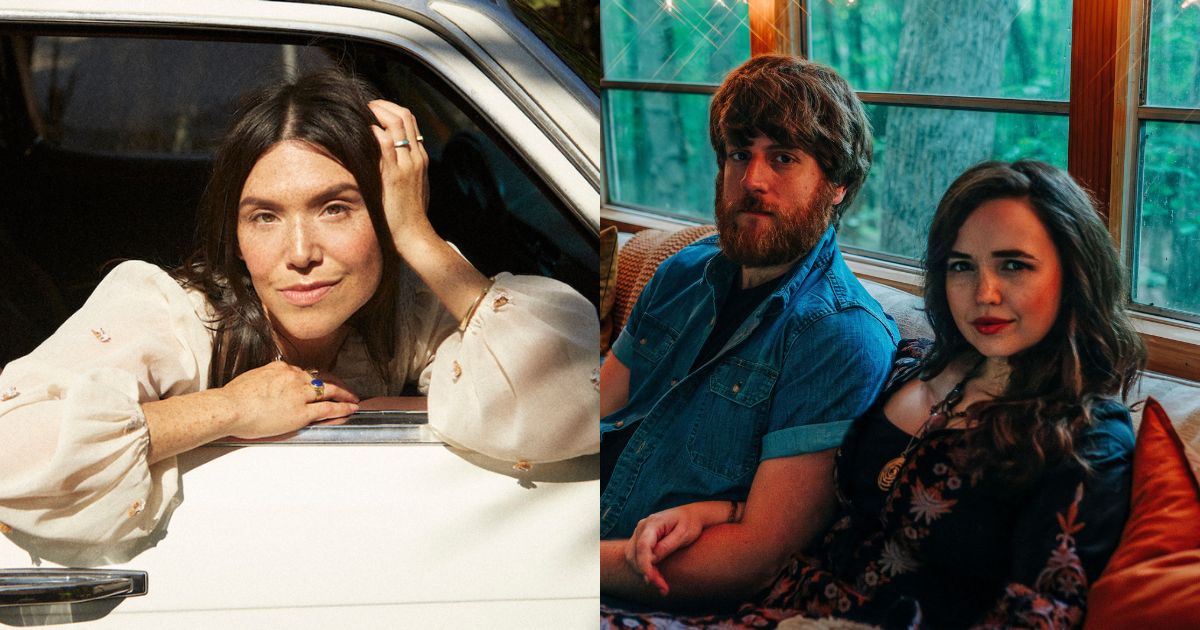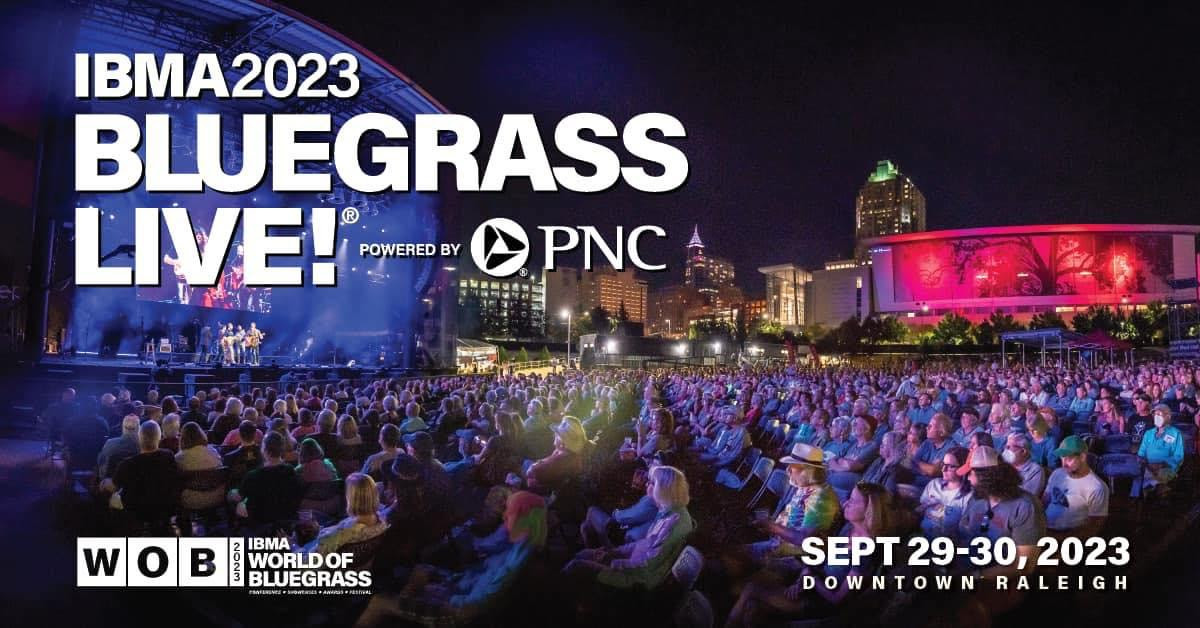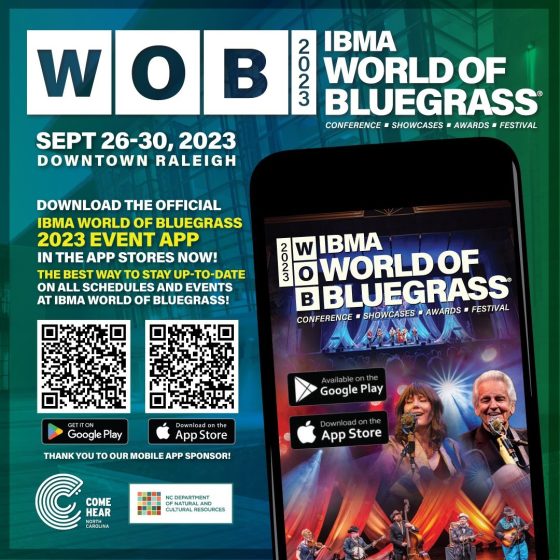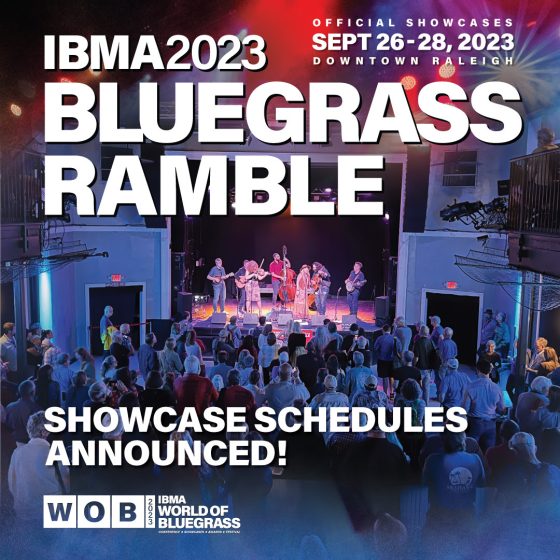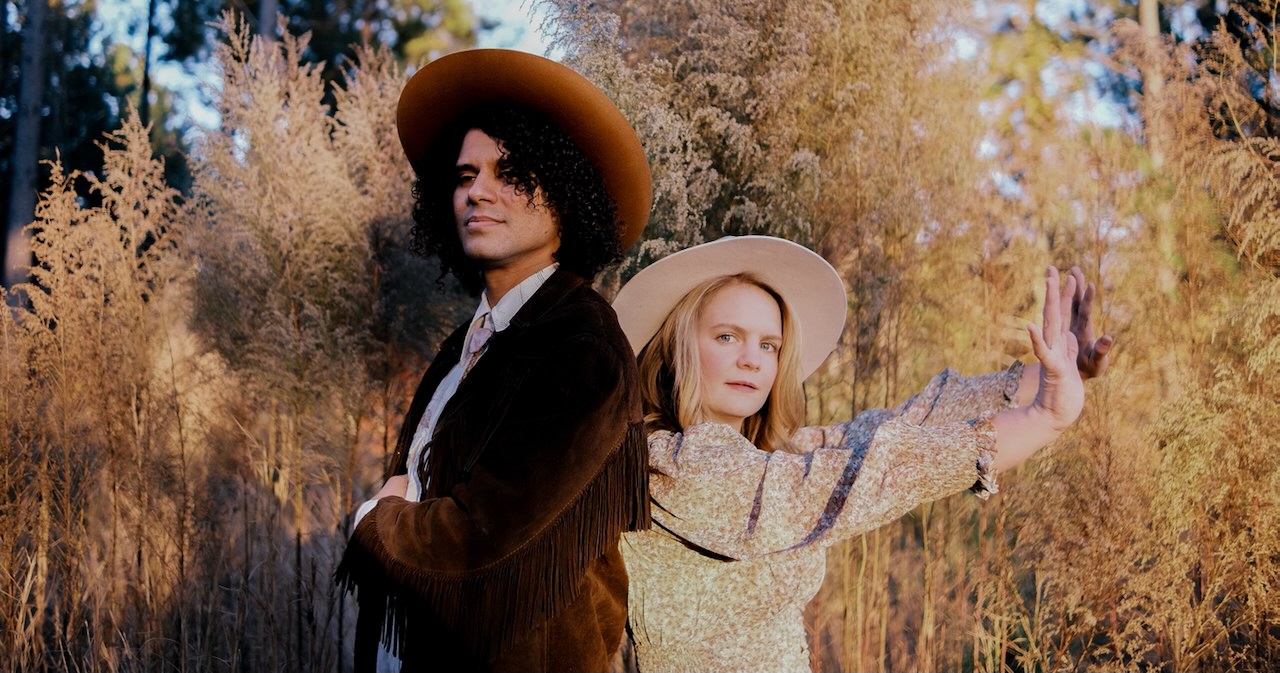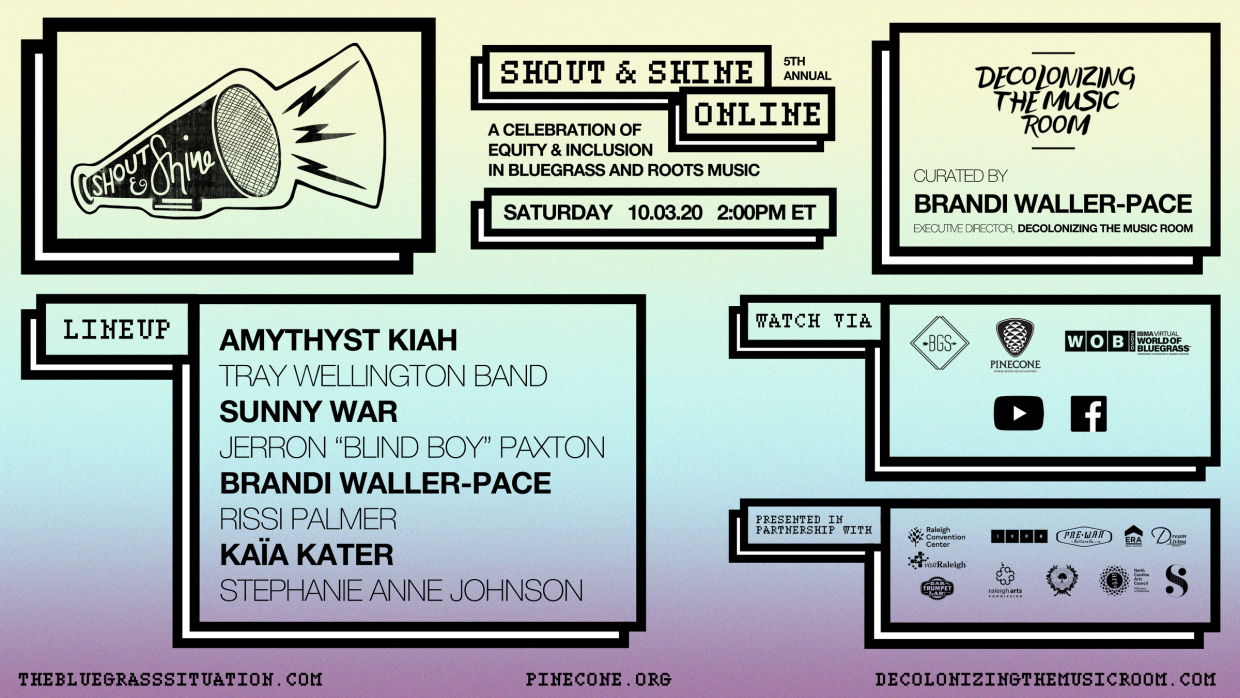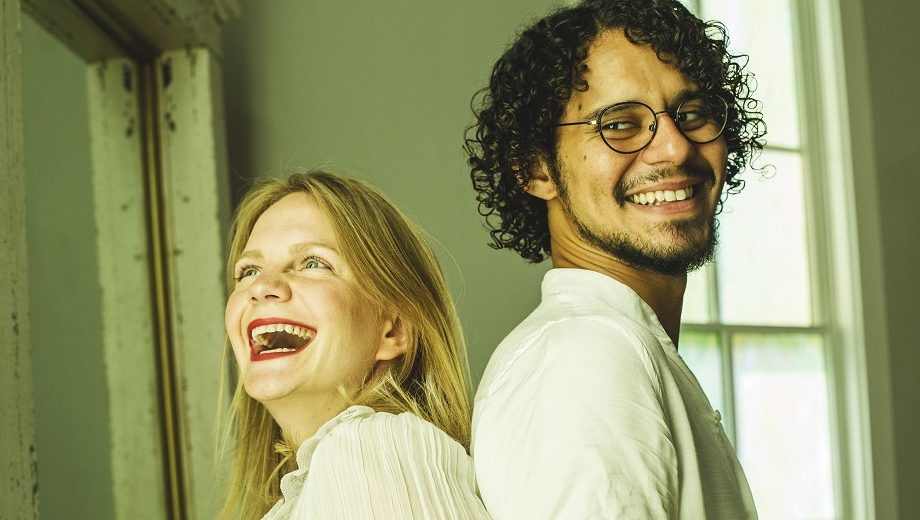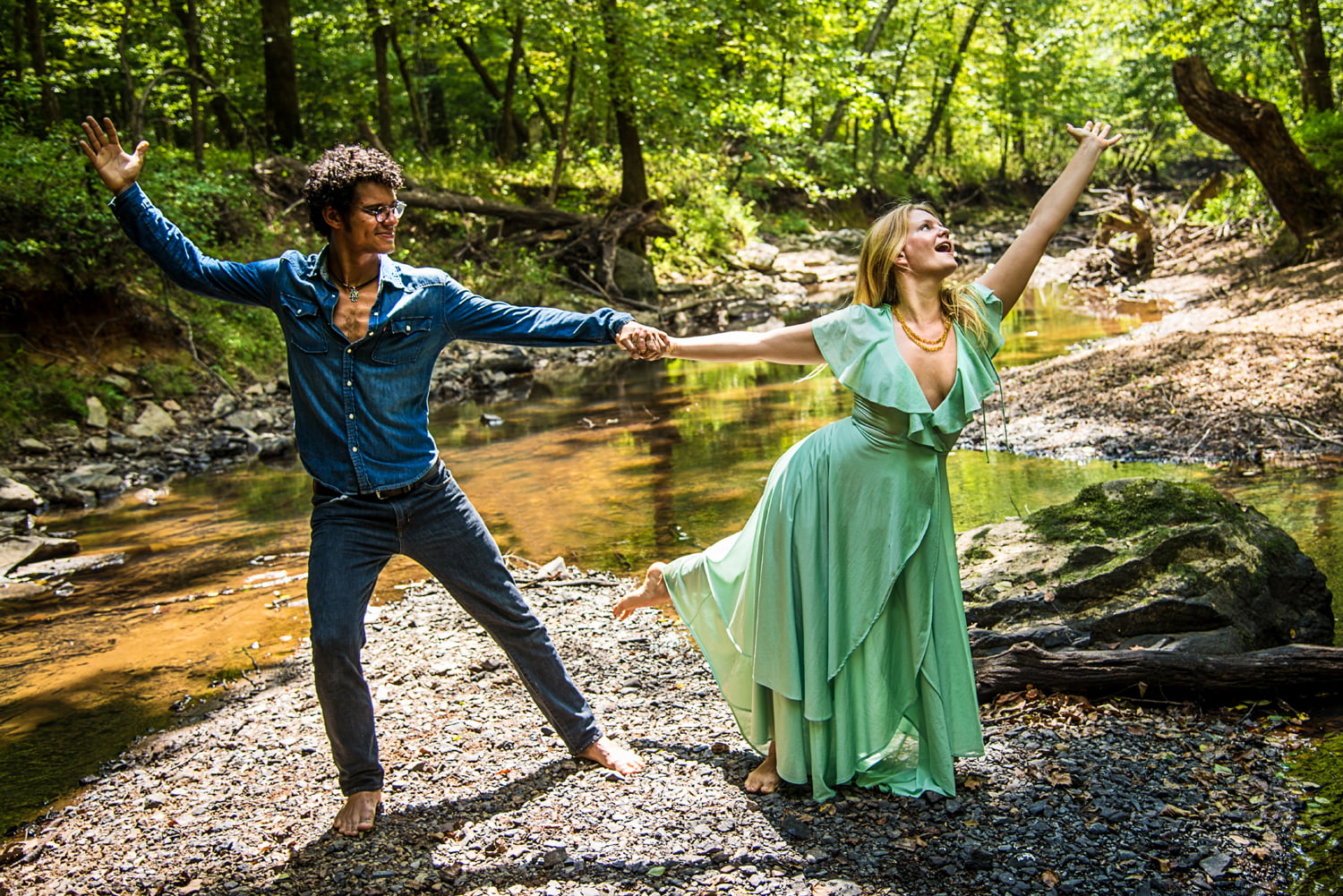You’ve reached the end of the week and we’ve got your soundtrack to take you into your weekend! This Friday, we’re showcasing premieres from indie folk singer-songwriter Malena Cadiz, from our old friends the Barefoot Movement, and Steven Keene gives a Woody Guthrie classic a new spin. Plus, Norwegian-via-Louisiana country artist Rainy Eyes takes us on a road trip down the “Lonesome Highway” and Darin & Brooke Aldridge bring a new lyric video for “Same Ole New Love.”
Don’t miss the conclusion of our Rootsy Summer Sessions series, too, featuring roots duo Violet Bell and special guest Emily Scott Robinson. Scroll for more, because You Gotta Hear This!
Malena Cadiz, “Getting By”
Artist: Malena Cadiz
Hometown: Los Angeles, California
Song: “Getting By”
Album: Hellbent & Moonbound
Release Date: October 20, 2023
In Their Words: “I think of ‘Getting By’ as a love song for the long haul, appreciating that the highs and lows of life that are all part of the beautiful, messy ride. Getting to move through them with the person I love is something I’m really grateful for. My producer, Andrew Lappin, suggested we bring in Lara Somogyi to play harp on the recording. In the live video, Tyler Cash & Jason Abraham Roberts reinterpret that part on keys and guitar. I love how it elevates and brings magic to the unglamorous, scrappy stories of day to day life – lying on the linoleum floor of my kitchen after a long waitressing shift, buying fancy foods with EBT, getting bit by a chihuahua, voicing the feeling that ‘this isn’t where I thought I’d be.’ This whole record is really about that – learning to let go of the expectations we’ve internalized around what and where we “should” be and instead embrace our own paths and our own unique journeys.” – Malena Cadiz
Track Credits:
Lead vocals – Malena Cadiz
Bass – Aaron Stern
Electric guitar – Jason Abraham Roberts
Vocals – Leeann Skoda
Drums – Sam Kauffman-Skloff
Keys – Tyler Cash
Producer, Music Director, Mixer – Andrew Lappin
Engineer – Brittney Orinda
Assistant Engineer – Ian Fogarty
Video Credits: Director & Videographer – Audrey McGee
Assistant Camera – Haden Cadiz
Editors – Thaddeus Ruzicka, Casey Jones, Audrey McGee
Hair & Makeup – Bethany Johnson
The Barefoot Movement, “Sarah Jane”
Artist: The Barefoot Movement
Hometown: Raleigh, North Carolina
Song: “Sarah Jane”
Album: Let It Out
Release Date: April 19, 2024
Label: Box Monkey Studios
In Their Words:“One of the last times I saw my great grandmother, I took her out of the nursing home to treat her to a manicure. I started rubbing her back while the technician was working on her nails and it must have felt really good, because she uttered this exclamation I’d never heard before: ‘Jump back Sarah Jane!’ The next time I saw her a few months later, she had had a stroke, she didn’t recognize me, and she died soon thereafter, so the Sarah Jane moment was one of my last memories of our time together.
“To some, she lived a rather ordinary, unremarkable life, but to us she was everything. She had an alcoholic husband, who died from complications of a car accident, leaving her to raise their three boys on her own. She worked at the cotton mill in Roxboro, North Carolina her whole life, until she retired. She loved her children, grandchildren, great grandchildren, and great-great grandchildren fiercely, and she made sure we knew it. She also made legendary biscuits from scratch.
“After she died, I was thinking about the life she lived and the phrase ‘Jump back Sarah Jane’ kept coming back to me. I wondered what it would have been like to raise kids through such tumultuous times in the 1940s, when it probably felt like the world was ending. This song is me imagining what a day in the life would have been like from her point of view, navigating a sense of impending doom while knowing that priority number one had to be showing up for her family. She did it well. And there were always biscuits on the table.” – Noah Wall
Video Credit: Workshop Media
Darin & Brooke Aldridge, “Same Ole New Love”
Artist: Darin & Brooke Aldridge
Hometown: Cherryville, North Carolina
Song: “Same Ole New Love”
Album: Talk of the Town
Release Date: April 19, 2024
Label: Billy Blue Records
In Their Words:“‘Same Ole New Love’ is an original tune co-written with our good friend Dennis Duff. Dennis brought the idea for this song to the table based on the long standing relationship and bond that he’s always shared with his wife after he noticed the same kind of love between Brooke and I. Through all the ups and downs in life, time and time again, love will always conquer and keep coming back around to that same ole love.” – Darin Aldridge
Track Credits:
Brooke Aldridge – Vocal
Darin Aldridge – Vocal, mandolin, guitar
Mark Fain – Acoustic bass
Cody Kilby – Rhythm guitar
Jacob Metz – Dobro
Samantha Snyder – Fiddle
Lynn Williams – Percussion
Video Credit: Shaye Smith / CustomLyricVideos.com
Steven Keene, “This World Is Your World”
Artist: Steven Keene
Hometown: New York City, New York
Song: This World Is Your World
Release Date: April 19, 2024
In Their Words: “As one of the first, if not the first true Americana protest songs ever written, Woody Guthrie’s ‘This Land Is Your Land’ was a landmark song that defined Woody and the genre of folk protest music as a whole. It was all about opening the public mind to what was going on in America at the time from a social and economic perspective. Instead of just talking about how great our country is, it was a call to talk about how divided this nation was with its walls of social division and exploitative economic practices.
“The idea behind ‘This World Is Your World’ was to take that important message and relate it within the context of the modern globalized world and to what we are going through right now as a universal society. In many ways, the world is smaller than it was 50 years ago, so I think it’s a song that has so much importance and relevance to what’s going on in the world today, from the threat of international conflict to the need to collectively address global environmental concerns.
“I’m very thankful to the Guthrie family for allowing me to change up some of the words and music and for granting me a co-write with Woody.” – Steven Keene
Rainy Eyes, “Lonesome Highway”
Artist: Rainy Eyes
Hometown: Lafayette, Louisiana
Song: “Lonesome Highway”
Album: Lonesome Highway
Release Date: July 12, 2024
Label: Royal Potato Family
In Their Words:“‘Lonesome Highway’ was written over the course of several years, and came about as an attempt to write a short movie in song form. Drawing loosely on inspiration from the personal experience of having to sever ties with toxic family members, and knowing that you can’t always help the people you love. Change has to come from within and sometimes you just have to take that lonesome highway and trust that if you take the leap of faith into the unknown, the universe will catch you.” – Rainy Eyes
Track Credits:
Irena Eide – Vocals, acoustic guitar
Dirk Powell – Violin, electric guitar, wurlitzer, accordion
Bill Smith – Drums
Gina Leslie – Background vocals
Video Credits: Honest Art – Production
Syd Horn – Director
Olivia Light – Camera
Emily Istre – Makeup, hair & stylist
Rainey Credeur – Makeup & hair
Rootsy Summer Sessions: Violet Bell
After seven gorgeous and lovely Rootsy Summer Sessions, we’ve reached the final installment of this series with two songs featuring Americana string duo Violet Bell. Shot overlooking the waters of the Kattegat, a bay on the North Sea, you may recognize the golden hour location from our earlier session with Emily Scott Robinson, who makes an appearance with Violet Bell after the North Carolina-rooted band appeared as guests in Robinson’s performances, as well.
Last summer, during Rootsy Summer Fest ’23, the videography team from I Know We Should captured this series of eight sessions in Falkenberg, Sweden featuring more than a dozen performers and nearly twenty individual tracks from Americana, country, and folk artists from across the genre spectrum and from both “sides” of the Atlantic.
Completing the series, Violet Bell – Lizzy Ross and Omar Ruiz-Lopez – first perform “Fisherman’s Daughter,” a fantastic story song from their critically acclaimed 2022 album, Shapeshifter.
Watch both performances and read more here.
Photo Credit: Malena Cadiz by Stefanie Parkinson; Barefoot Movement by K Hammock Photography.
